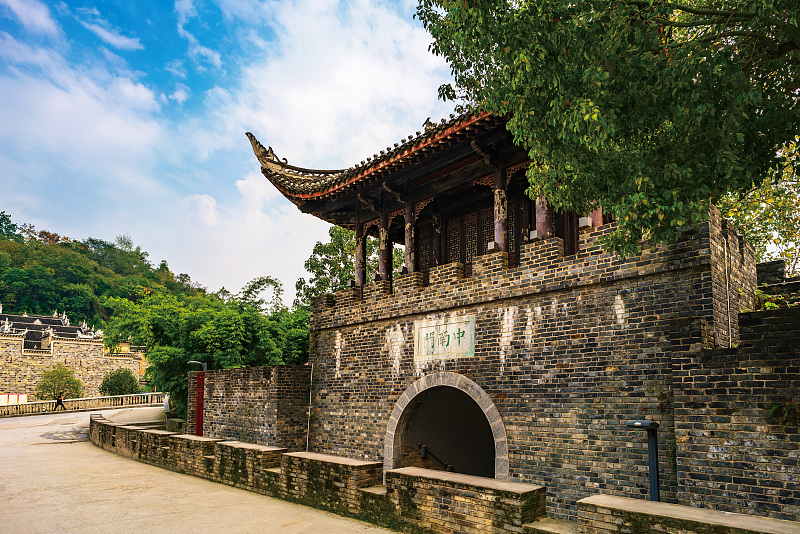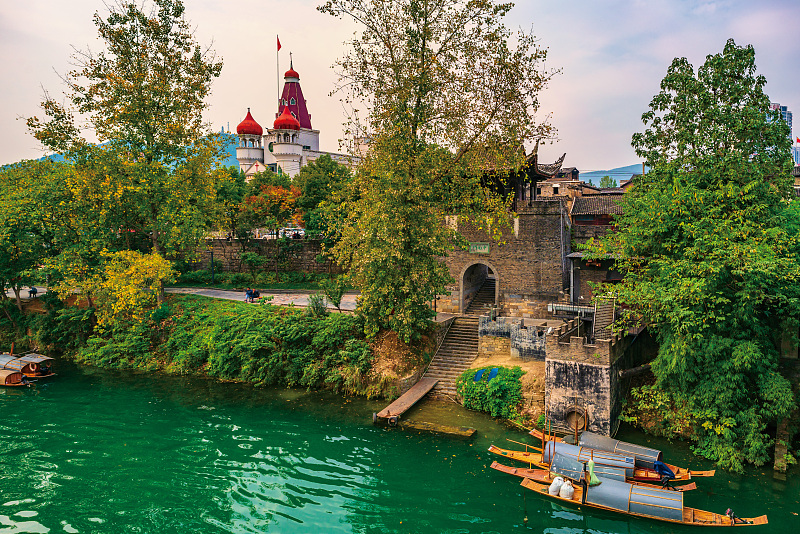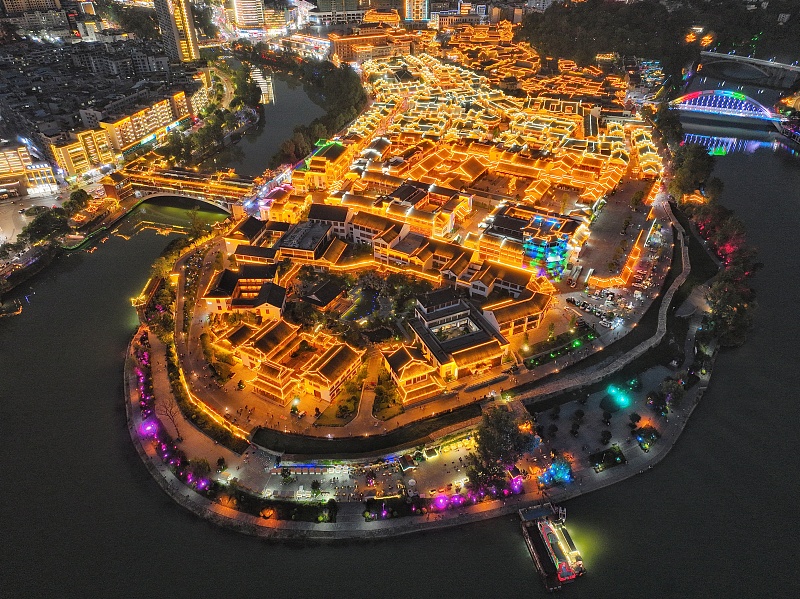Located in the downtown area of Tongren City, Guizhou Province, Zhongnanmen Ancient Town retains many well-preserved buildings dating back to the Ming (1368-1644) and Qing (1644-1911) dynasties, reflecting the process of the economic, social and urban development taking place over time in this scenic town in southwest China.

A glimpse of Zhongnanmen Ancient Town in Tongren City, Guizhou Province. /CFP
A glimpse of Zhongnanmen Ancient Town in Tongren City, Guizhou Province. /CFP
Built over five centuries ago, Zhongnanmen Ancient Town took advantage of its convenient water transportation routes on the nearby Jinjiang River and developed into the political, economic and cultural hub of the area. From ancient to modern times, it has remained a showcase of ancient relics and diverse cultural heritage set amid stunning natural beauty.

Surrounded by beautiful scenery, Zhongnanmen Ancient Town boasts a long history in Tongren City, Guizhou Province. /CFP
Surrounded by beautiful scenery, Zhongnanmen Ancient Town boasts a long history in Tongren City, Guizhou Province. /CFP
The ancient town covers an area of about 36,000 square meters, with around 26,000 square meters being occupied by ancient residential buildings. It is the only historic district of Tongren City that reflects the original architectural style and features of this ancient city.
The ancient building complex takes Zhongshan Road as its longitudinal axis, from where countless lanes fan out to form the renowned Zhongnanmen Historical and Cultural Tourism and Leisure Block. The many residential, religious and commercial buildings lining the streets of the block feature a blend of architectural styles and aesthetics.

An aerial photo shows the Zhongnanmen Historical and Cultural Tourism and Leisure Block illuminated at night in Tongren City, Guizhou Province. /CFP
An aerial photo shows the Zhongnanmen Historical and Cultural Tourism and Leisure Block illuminated at night in Tongren City, Guizhou Province. /CFP
People from different ethnic groups – such as the Miao, Tujia, Dong and Gelao ethnic groups – live in this multicultural city and continue to shape its society. They've helped to develop a promising society rich in intangible cultural heritage through their wisdom and hard work. For example, the Miao people's excellent embroidery skills, batik handicrafts and other intangible cultural heritages beautifully reflect the cultural diversity and colorful characteristics of the region.
From ancient temples to folk art workshops, from shopping malls to teahouses, the block has a rich variety of entertainment options to cater to visitors. Listed as one of China's tourism and leisure blocks in 2023, it's a wonderland full of surprises just waiting to be explored.